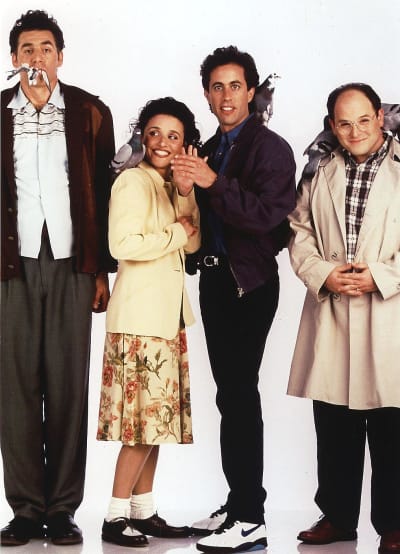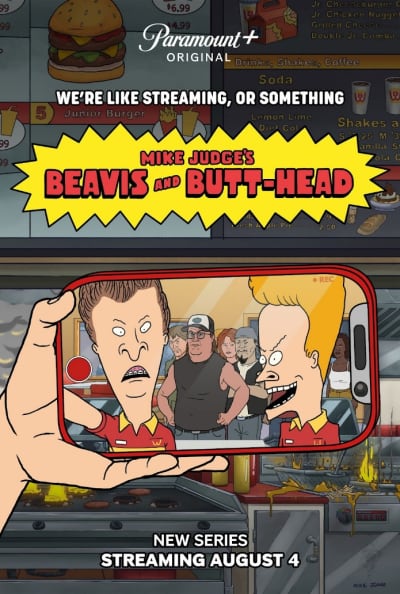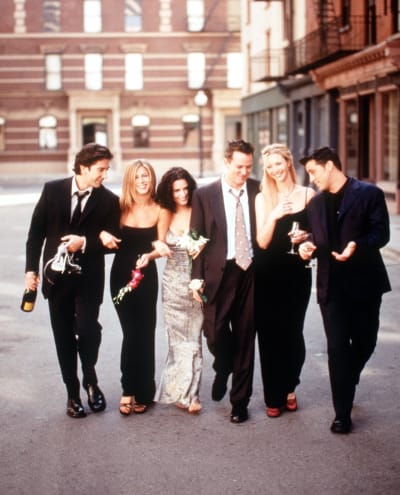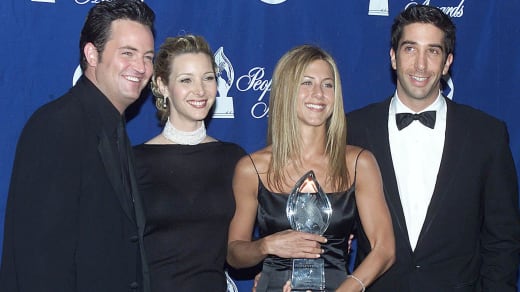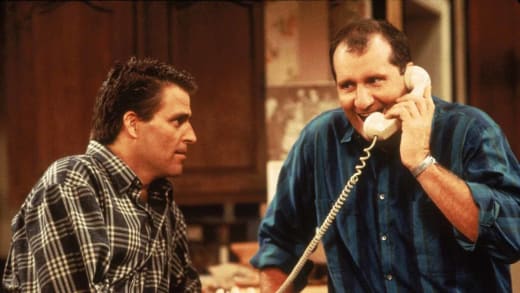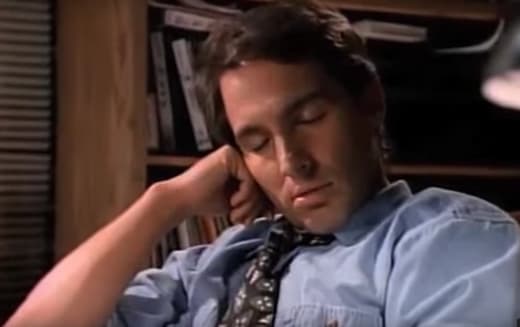[ad_1]
Jerry Seinfeld remains to be haunted by his TV mom’s phrases — “How might anybody not like him?”
No marvel Seinfeld has been throughout social media in current months.
He forgoes his typical stoicism and criticizes every little thing in sight, from critics of his film “Unfrosted” to Howard Stern, faculty campuses, and even the solid of Buddies.
In a current interview, Lisa Kudrow said that Seinfeld tried to take credit score for Buddies’ success and implied that if not for Seinfeld laying the groundwork for a unusual New York group of misfits, the present would by no means have made it.
To at the present time, many Seinfeld followers suppose Buddies was a rip-off of Seinfeld that simply occurred to inherit a comfortable Should-See TV time slot.
Nevertheless, Buddies followers, and even some Seinfeld followers, rapidly level out that Buddies’ humor is nothing like Seinfeld’s outlook.
The difficulty could also be complicated when one tries to interrupt down every present right into a generational zeitgeist.
Seinfeld is blatantly a Boomers-era present, created by two of the Boomer era’s most outspoken and influential minds, Jerry Seinfeld and Larry David, who wrote their present for young-at-heart, 35+ demographics.
Buddies was marketed at a youthful demographic as if to say this was a New York-based comedy about discovering and avoiding love, nevertheless it was one aimed toward Gen Xers reasonably than Boomers.
What I bear in mind most about Buddies is that it lacks a transparent cultural id. It is one of many only a few exhibits that feels timeless and totally oblivious of what era it is in.
Buddies is decisively not Era X, as there’s hardly any grunge, goth, or counterculture in sight.
There’s hardly any dialogue of music.
Even exhibits like Beavis and Butt-Head and Daria perceive how music can form tradition and affect some characters’ attitudes and selections.
Buddies appear, at instances, oblivious to Nineties tradition and even weary of the early 2000s tradition when the world was slowly however certainly turning into tech-hungry.
What’s amusing about Buddies is that it might simply as simply happen within the early 1900s, simply as a lot because it might happen within the early 2000s.
Suppose you had been to substitute pivotal moments in Buddies involving prematurely delivered voicemail messages with unexpectedly written snail mail letters.
In that case, you might need a compelling Elizabethan comedy-drama or a barely much less ridiculous Bridgerton.
One might argue that Buddies boldly explored sentimental territory that Seinfeld by no means did.
It was a present in love with individuals in love and fascinated with the emotional turmoil of Nineties twentysomethings addressing their neuroses by relationship the fallacious form of individual.
Even higher, all of them did discover love — er, sorry, Joey — and lived suburbanly ever after by the collection finale.
In that respect, the open-hearted, emotionally pushed plots make Buddies appear virtually millennial or zillennial in nature…
Apart from the obvious truth that the majority Gen Yers and Gen Zers do not get Buddies in any respect and are horrified by the sentimentalization of delinquent habits!
It is a present that glorifies its self-centered characters and mocks their barrage of silly lovers.
Not like Seinfeld, which was a Vaudevillian parody of romantic comedies (with characters so cartoonishly villainous the writers despatched them to jail in the long run), Buddies appeared to imagine within the absolute “Lawful Good” of all its characters.
And that was the half millennials by no means agreed with.
Ross was a cheater, Rachel was shallow and manipulative, Chandler was petty and vengeful, Joey was unethical, Monica was bullying, and Phoebe was, nicely, socially awkward to the purpose of psychosis.
Sure, none of those subplots had been meant to be taken significantly.
A therapeutic massage therapist biting a shopper’s butt, or leaving an ex-girlfriend handcuffed within the workplace in a single day, had been exaggerated comedy skits on par with Wiley E. Coyote or no less than Al Bundy.
(Let’s not overlook Married…With Kids preceded cartoonish sitcoms with antiheroes lengthy earlier than Seinfeld did.)
Nothing mattered within the Buddies universe as long as it made you snicker.
I bought it, whilst a Gen Xer who was not too in love with the present’s mawkish writing.
Buddies was not a commentary on ethics or morals.
In that respect, Buddies benefitted from Gen X’s rampant “nothing sacred” tradition within the Nineties.
In doing so, nevertheless, it alienated future millennials, who acknowledged Buddies as a non-millennial present writing about stuff that solely Boomers and Gen Xers appeared to grasp.
It irritated Era X as a result of the present’s writing was too self-important and open-heart, lovey-dovey to talk to essentially the most disenfranchised era.
It lacked the sting of different Nineties cultural landmarks like Daria, WWE Monday Night time Uncooked, Beavis and Butt-Head, and Intercourse and the Metropolis.
Buddies was a declawed Nineties phenomenon, like a extra sex-positive TGIF present, and seemed spectacular when in comparison with the drudgery of Household Issues and Step By Step, which had been paranoid of youngsters even discussing intercourse.
Nevertheless, the present’s ambiguous tradition isn’t unintended.
In truth, Buddies was invented by David Crane and Marta Kauffman, two of essentially the most prolific Boomers of the Nineties.
Beforehand, each Crane and Kauffman labored on the HBO collection Dream On (1990-1996), which was so Boomer-riffic, that it alienated mainstream audiences and solely discovered its area of interest on HBO.
Regardless of being the primary American sitcom to function nudity and swear phrases, Dream On was surprisingly nostalgic and nostalgic.
The present even used previous black-and-white tv collection clips for instance Tupper’s old style stream of consciousness.
In fact, it by no means discovered something in addition to a cult following since Martin Tupper, a divorced New York Metropolis guide editor, was hardly a youth-friendly icon.
It was clear that Crane and Kauffman needed to suppose youthful, despite the fact that their Boomer comedic sensibilities had been already extremely developed.
Now, what if there was a means for these Boomers to transplant their midlife disaster brains into some attractive twenty-something skinsuits?
A twisted type of immortality, not precisely just like the film Get Out, however shut sufficient!
Once I first noticed Buddies within the Nineties, I noticed it as yet one more New York-centric, Woody Allen-esque romcom, as they had been in all places on the time.
I laughed, typically in opposition to my will, as a result of regardless of all of the pleased emotions, these had been genuinely humorous individuals.
Upon repeat viewings twenty years later, the humor nonetheless hits its mark, and it is extremely cool {that a} bunch of twenty-year-old actors mastered comedian timing so younger.
It ages nicely in that it precisely depicts 20-year-olds as imperfect, often heartless, and, nicely, form of dumb — as they need to be!
Will we put a lot strain on younger adults right this moment that we count on them to make no errors and go virtue-signaling with out double requirements each second of day by day?
Is not human hypocrisy one of many tenets of timeless humor?
It is also charming in a nostalgic means that the Buddies characters by no means fully deserted their souls, as did the a lot funnier Seinfeld Alumni—whom Larry David insisted had been on a smelly automobile trip to Hell.
These had been dumb faculty children who tried their greatest to develop into cautious adults.
Nevertheless, as I noticed the inherent worth of Buddies’ message, I could not shake the sensation that these characters weren’t true Gen Xers chatting with us about their world.
These had been Boomer writers cosplaying as Gen Xers and discovering a “fountain of youth” by recreating their comedic sensibilities in a lot youthful our bodies and culturally oblivious character arcs.
To observe Buddies right this moment, or twenty years in the past, or 100 years in the past, is merely to look at a timeless story of stunted emotion from post-adolescents who by no means wished to complete highschool and most well-liked their foolish, shallow romantic lives to the hustle and bustle of profession, and discovering their true life’s calling.
It is like listening to a Boomer confessional about how they need they knew again then what they know now.
Buddies is the right instance of embracing the great issues of right this moment that we previous individuals can not have, even when it is simply by telling a narrative about how superior it might be in case you might strive all of it once more.
Michael Arangua is a workers author for TV Fanatic. You’ll be able to observe him on X.
[ad_2]



